Early estimates are cautious, but well over half a million people took to the streets around the globe this weekend, on the eve of COP21, to affirm a unified global commitment to curbing man-made climate change. In tiny villages and major cities, on the streets of island nations and of landlocked northern states, marchers united across languages and time zones. As the photos arrived on the wire, it was like watching a single event unfold—one grand, 72-hour expression of global egalitarian politics.
In Seoul, South Korea, two ladies braved the rain.
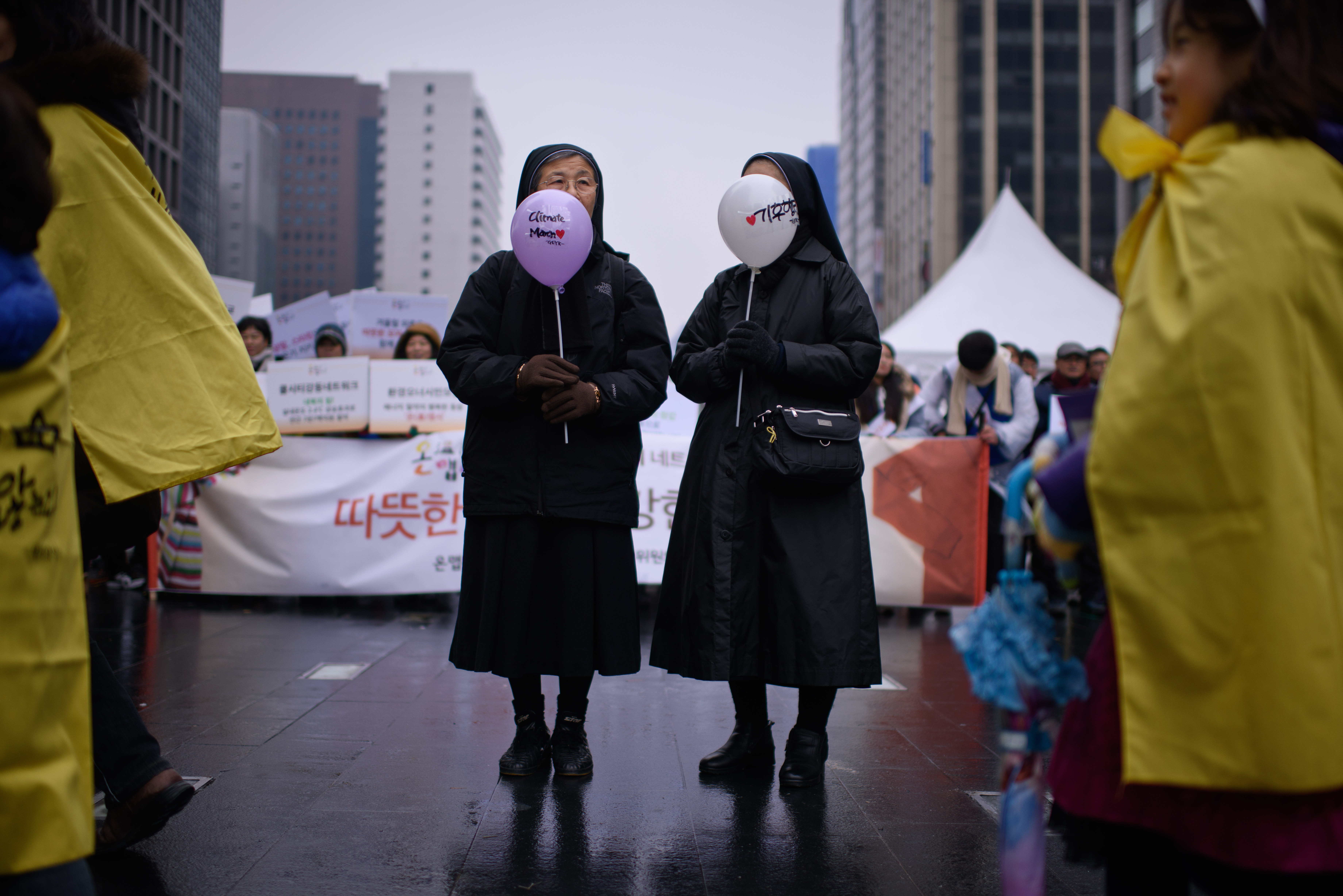
The march in Melbourne, Australia, was the largest of the weekend—60,000 marchers, with London’s 50,000 in second place. Below, demonstrators in Melbourne link the struggle for climate justice with the struggle for a free Tibet.
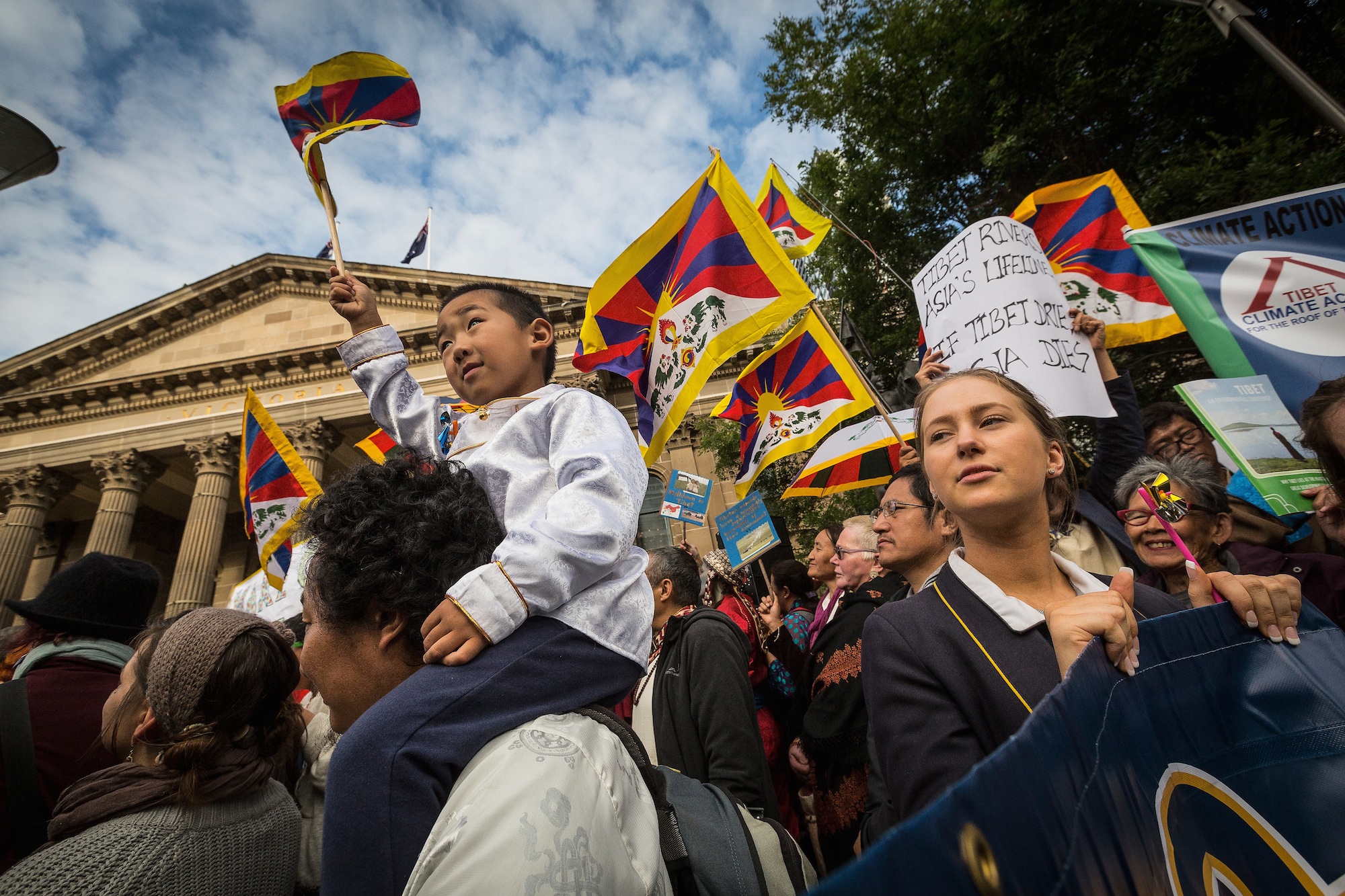
In Geneva, Switzerland, the polar bears mixed peaceably with their human allies.
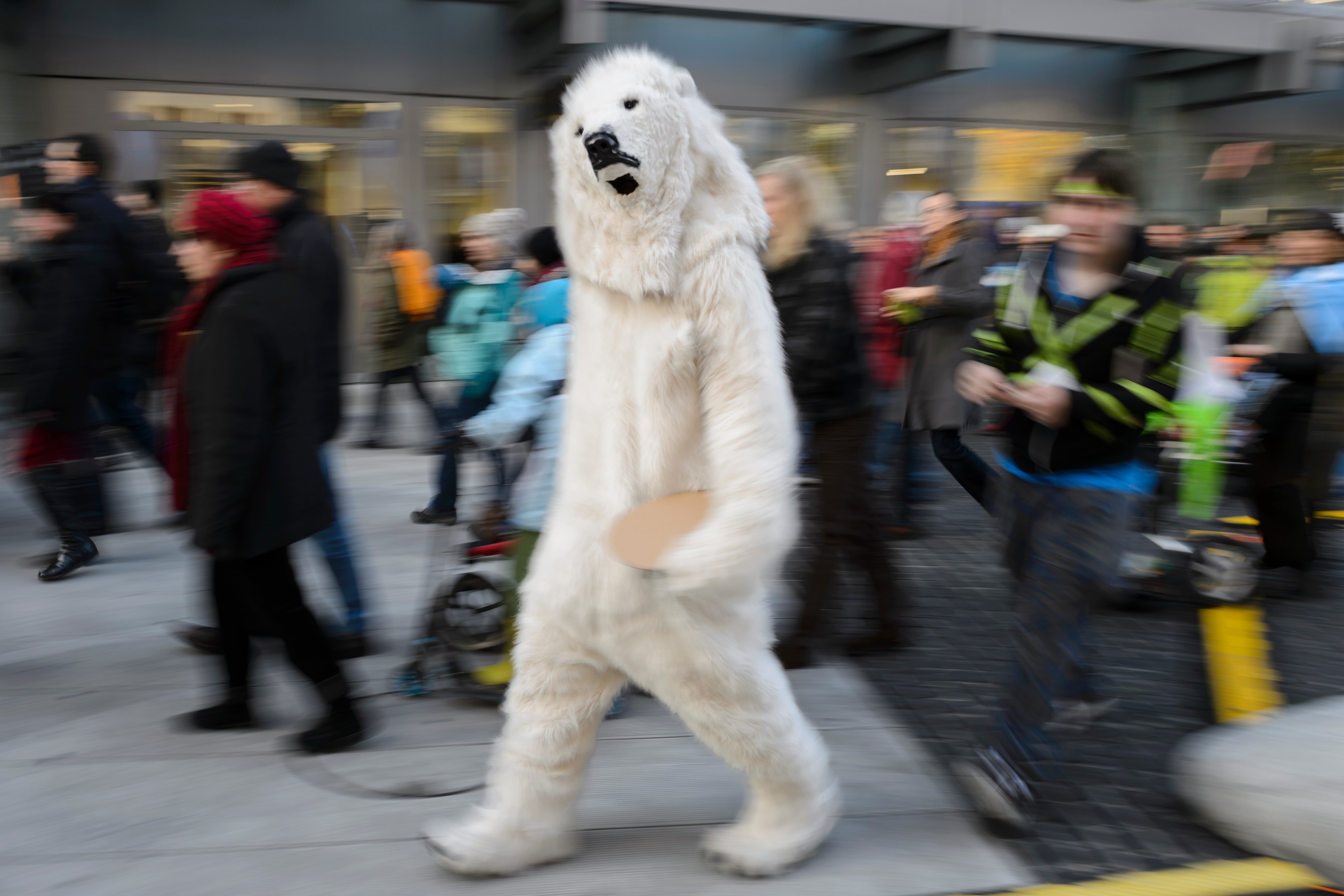
In Paris, France, the host-city of COP21, Oxfam International staged a Big Heads of State summit, with actors balancing oversize papier-mâché masks of Indian President Narendra Modi, German Chancellor Angela Merkel, Chinese President Xi Jinping, President Barack Obama, and French President François Hollande. At the table between them, the menu in French reads: “We want to see more ambition at the negotiating table.” The big heads treatment is a (mostly) good-natured ribbing that Oxfam gives world leaders regularly at these things. For COP19 in Warsaw, the Big Heads even served food.
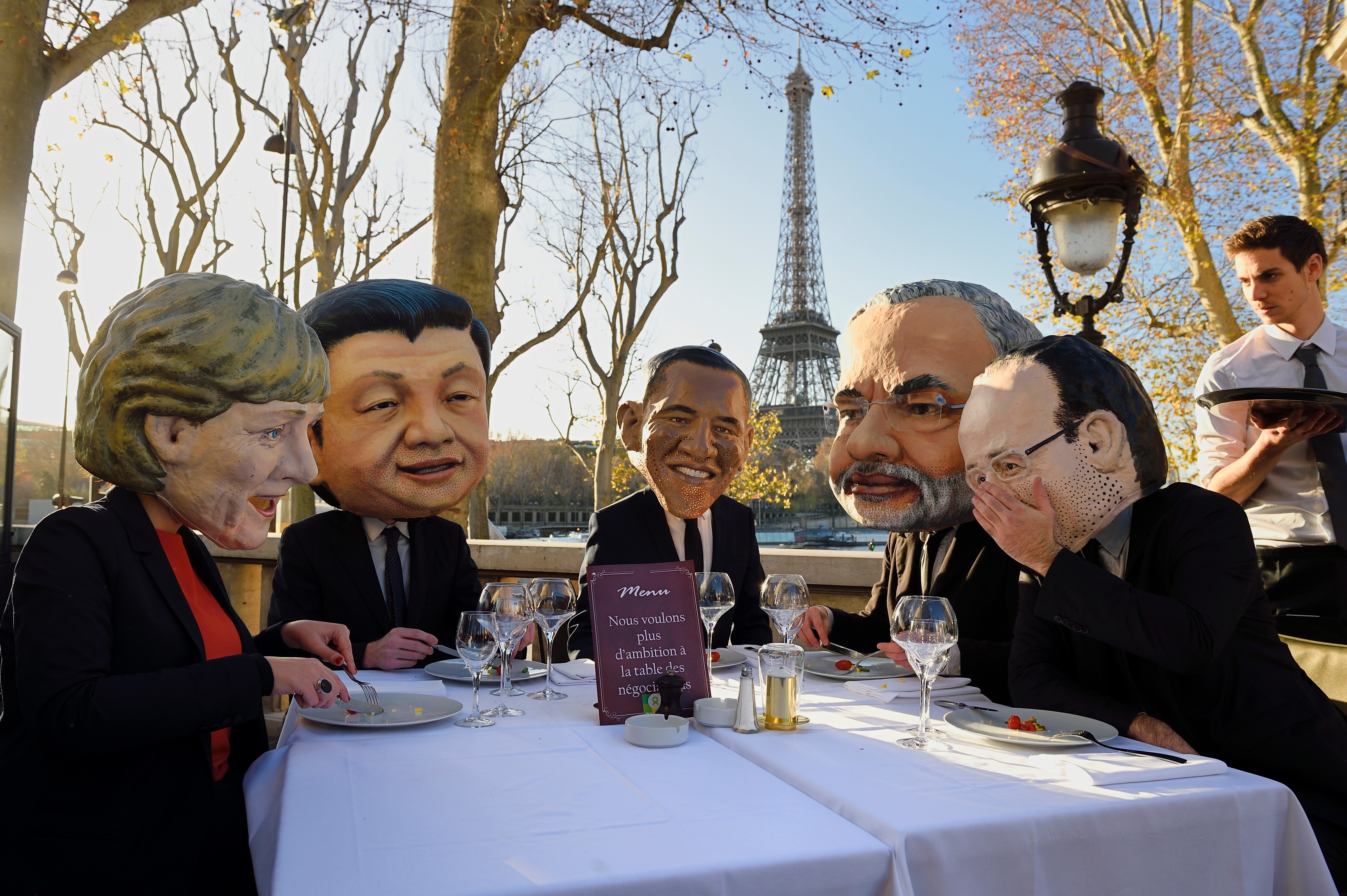
Elsewhere in Paris, the march of 200,000 planned by Avaaz in conjunction with other international non-profits was banned, so protestors initially found a creative and beautiful way to turn silence to their advantage—by installing 20,000 shoes at the Place de la République, to commemorate a march that had never taken place. (Smaller breakaway groups clashed briefly with police off the plaza, and some 200 protestors were arrested.)
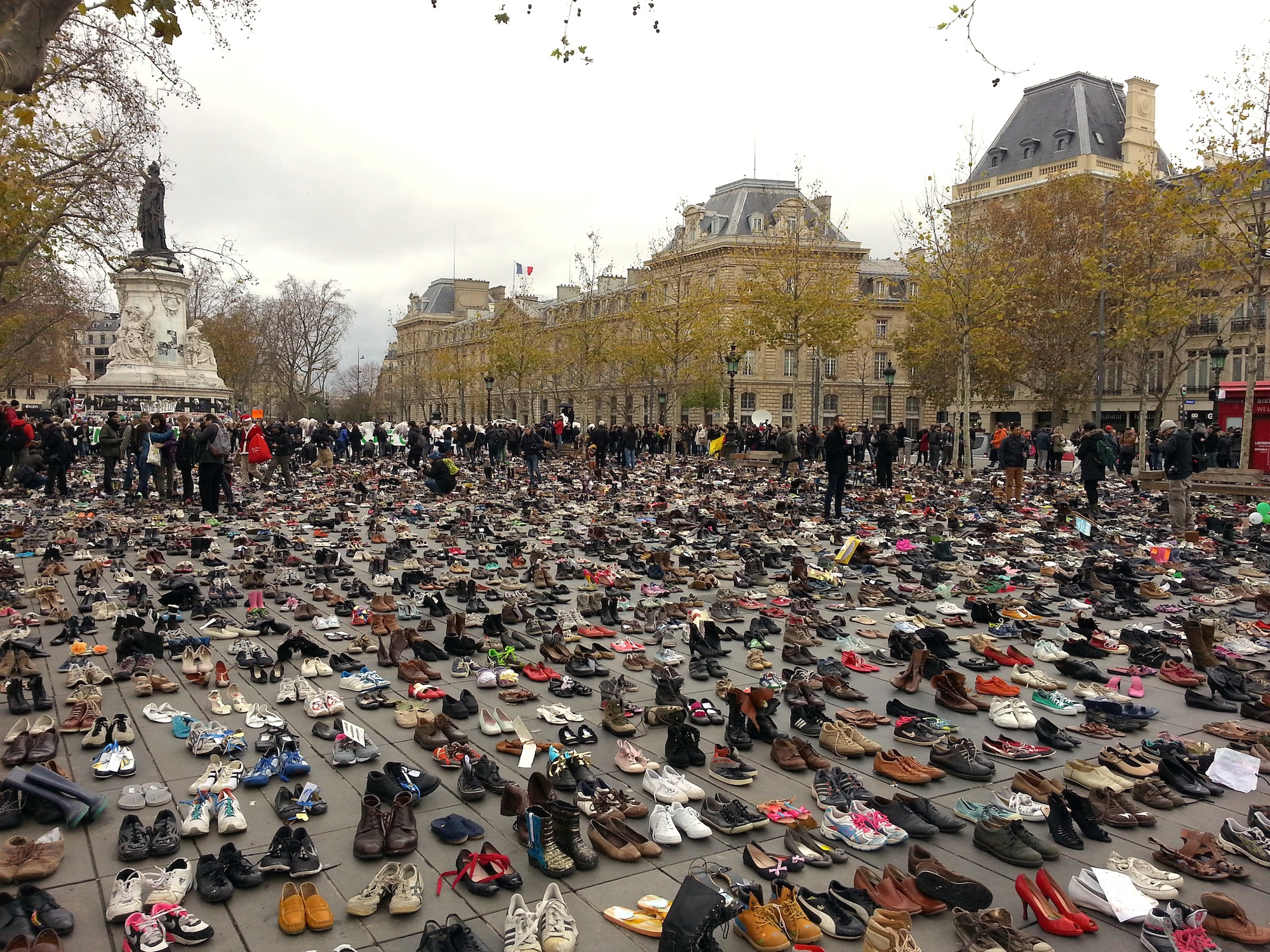
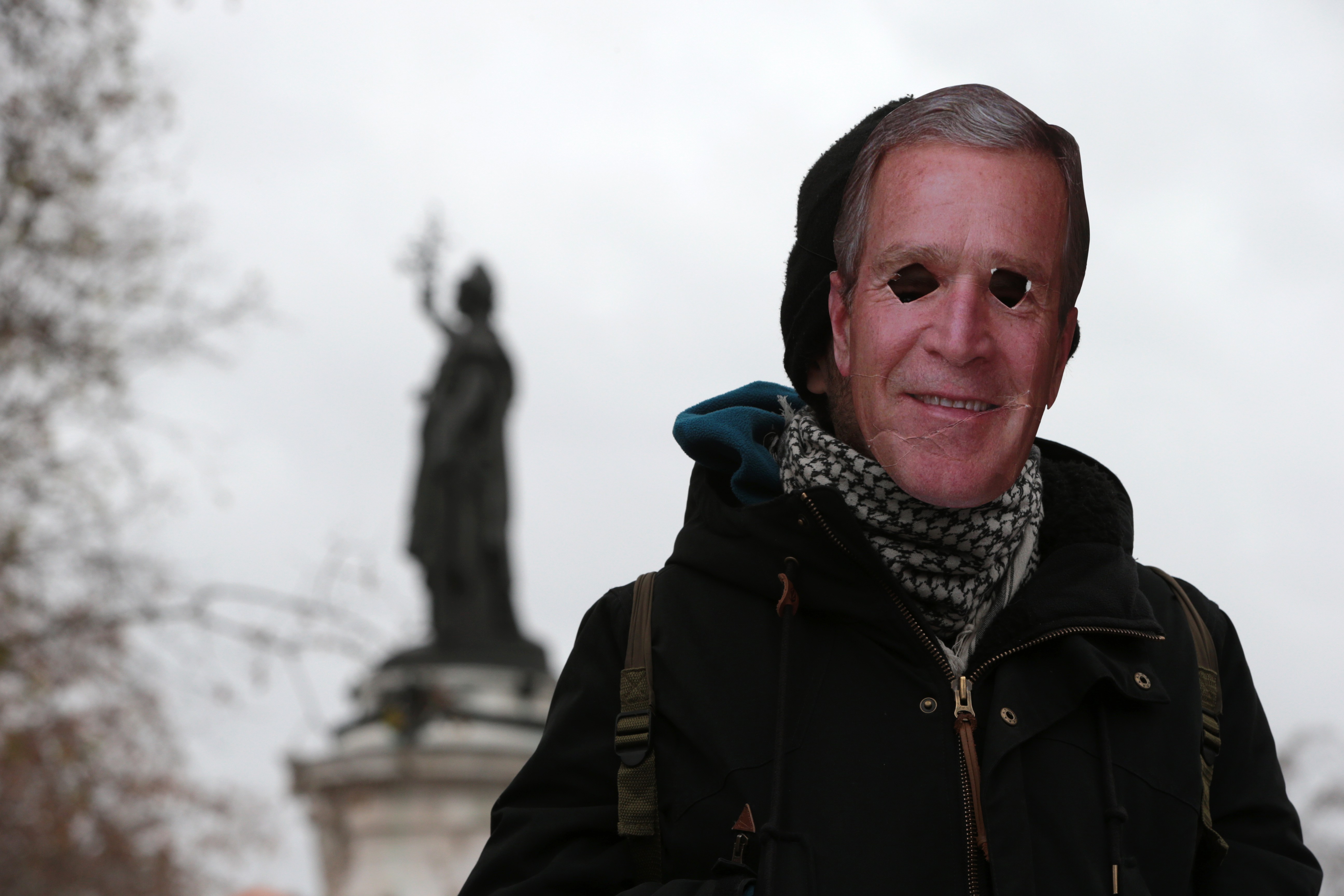
Marchers in Manila maintained a sunny disposition.

In Nantes, France, activists formed a human chain.
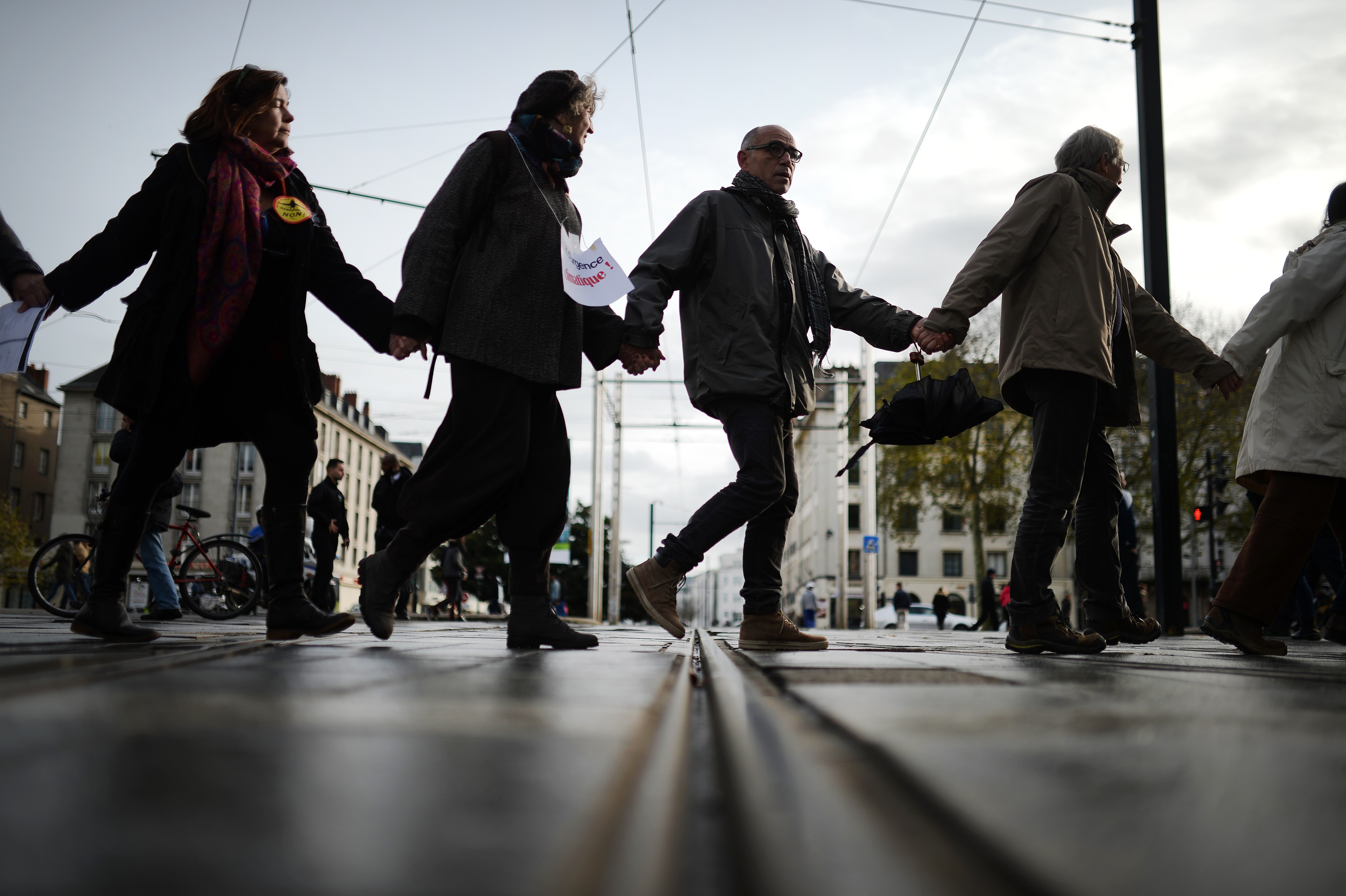
In Johannesburg, South Africa, climate justice was at the fore.
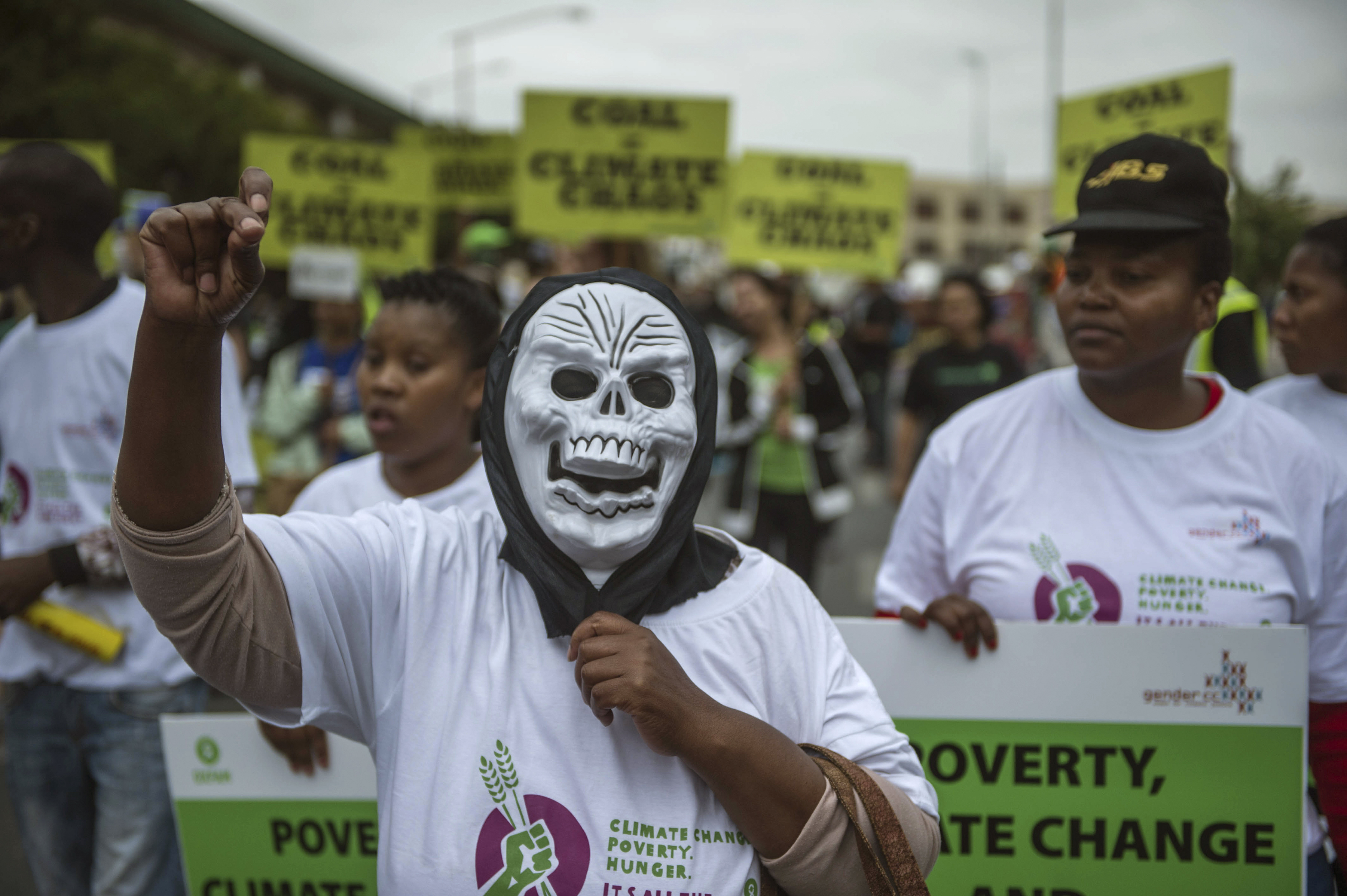
And in Dhaka, Bangladesh—one of many countries racked with increasingly frequent natural disasters—demonstrators carried effigies of endangered flora and fauna.
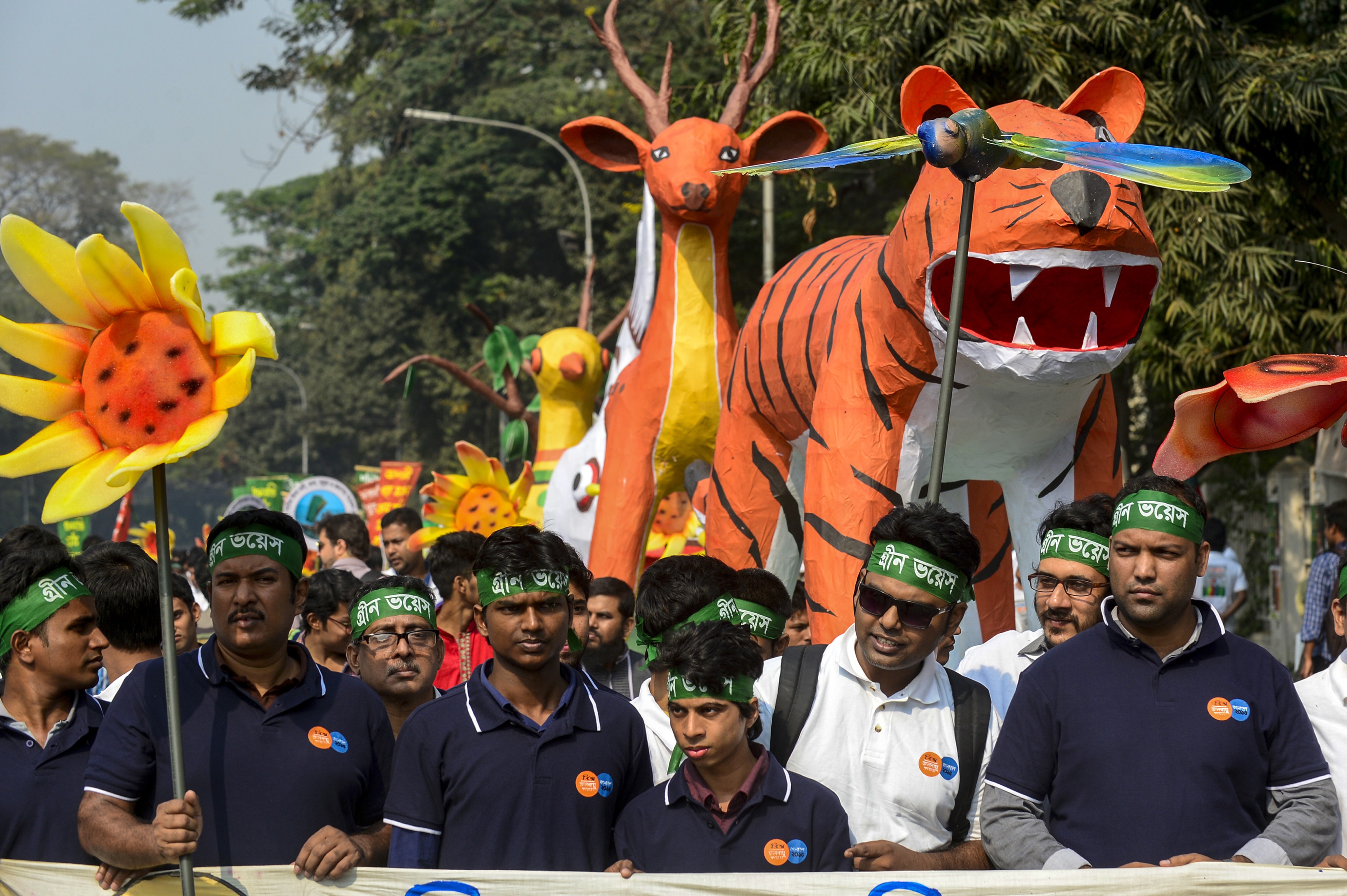

“Catastrophic Consequences of Climate Change” is Pacific Standard‘s year-long investigation into the devastating effects of climate change—and how scholars, legislators, and citizen-activists can help stave off its most dire consequences.




